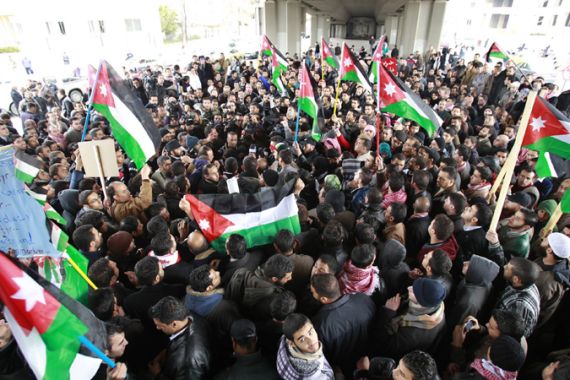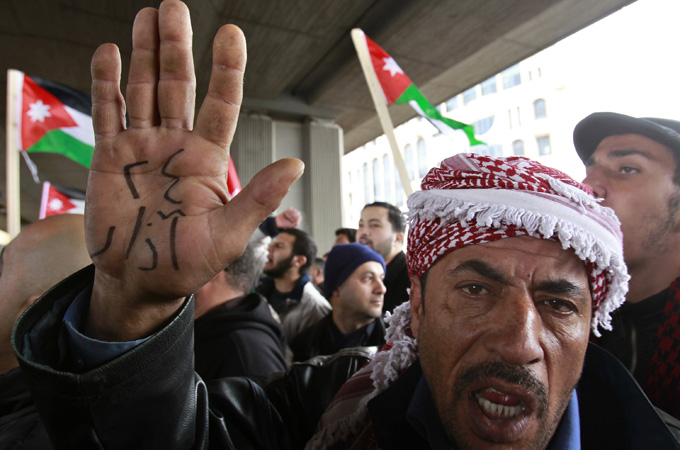Protest camp set up in Jordan capital
Demonstrators in Amman vow to continue with their sit-in until demands for political reforms are met.

 |
| Demands of the protesters include ouster of the prime minister and changes to election laws [Reuters] |
Hundreds of Jordanians have set up a protest camp in a main square in the capital to press demands for the ouster of the prime minister and wider public freedoms.
The 500 protesters appeared to be mostly university students or unemployed graduates unaffiliated with any political party.
Many said they met through Facebook last month to launch a group called the Jordanian Youth Movement.
Ziad al-Khawaldeh, the group’s spokesman, said protesters would remain outdoors until Marouf al-Bakhit, the prime minister departs.
Other demands include dissolving what is widely seen as a docile parliament, dismantling the largely feared intelligence department and giving greater powers to the people.
‘New Jordan’
The group changed its name on Thursday to “Youth of March 24” – marking what members said was the start of an open-ended demonstration.
“Today is the dawning of the Jordanian revolution,” al-Khawaldeh said.
“We will not move an inch from here until our demands are met,” he said under pouring rain at the Interior Ministry Circle in the heart of Amman.
The district houses the interior ministry and police, financial and other government offices as well as Western hotels.
Protesters waved banners that called for a “new Jordan, clean of corruption and corrupt officials”.
“Intelligence department, we want your hands off politics!” they chanted.
Al-Khawaldeh said the protesters want prime minister Marouf al-Bakhit to be “instantly replaced with a liberal government that would quickly implement reforms”.
Al-Bakhit, a former army general, is widely regarded as a tough military officer incapable of introducing changes demanded by protesters.
Those reforms include an election law replacing a one seen as favouring the king’s loyalists and blamed for producing a docile parliament, the only elected body in Jordan’s government.
Jordan’s opposition also want to strip the king of some of his powers, specifically in appointing the prime minister. Instead, they want the premier to be elected by a popular vote.
Mohammed al-Qaisi, one of the protesters, said they want parliament to be dissolved and new elections to be held under a new election law, giving more proportional representation to Jordanians and reducing the number of votes in districts inhabited by tribesmen, who form the bedrock of support for the king.
“Enough is enough,” al-Qaisi, an unemployed sociologist, said.
“We don’t want the king to go, but we want him to listen to us; We’re fed up with al-Bakhit, with parliament and with Jordan being a police state ruled by the intelligence department.”